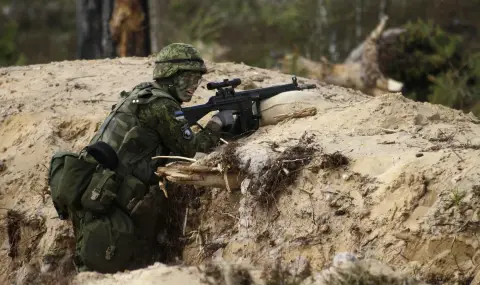Military experts warn that Vladimir Putin could test NATO's readiness for war by occupying an Estonian town on the border with Russia, writes focus.de.
The “Narva scenario“ is only hypothetical, but analysts say these ideas could soon become reality. Putin's plan is simple: to occupy the town of Narva, with a population of 50,000, to test whether NATO countries are willing to risk a potential nuclear war against Russia over the small Estonian town.
The so-called “Narva scenario“ is what military expert Carlo Massala examines in his latest book. In an interview with N-tv, he and his colleague, military historian Sönke Naitzel, again warn against this danger. In the interview, the two scholars emphasize that Russia could try to challenge the Western alliance if it first achieves victory over Ukraine.
According to the hypothesis, the Russian army could occupy Narva, one of NATO's easternmost points, to test whether the alliance will immediately come to the aid of Estonia under Article Five of the treaty (according to which an attack on one NATO country is considered an attack on all).
In Masala's scenario, which he plays out for 2028, NATO countries will face a dilemma. Do they react and thus risk escalation to the point of nuclear war? Or do nothing, thereby destroying their own credibility, burying NATO's security promise, and continuing to encourage Putin's aggression? The big question is whether NATO soldiers are willing to die for Narva.
Sönke Neitzel is convinced that Putin will test NATO by testing the reality of its promises of support. The Narva scenario is by no means far-fetched, considering that Putin said shortly after the attack on Ukraine that the city historically belonged to Russia. The newspaper Die Welt quotes Narva residents as saying that there are constant provocations and sabotage by Moscow.
FRANCE 24 reported in a recent report from Narva that the local population is preparing for war. Estonian civilians are undergoing military training and are preparing for all possible scenarios. The population is divided: while some members of the city's Russian-speaking community are nostalgic for the Soviet era, others fear Moscow's military ambitions.
